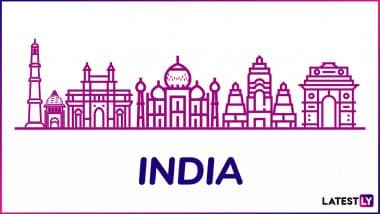New Delhi [India], May 18 (ANI): India is having about 7.1 COVID-19 positive cases per lakh population as compared to the total confirmed cases in the world, which is approximately 60 cases per lakh population, said the Union Ministry of Health and Family Welfare (MoHFW) on Monday."In terms of confirmed cases per lakh population, India has so far about 7.1 cases per lakh population vis a vis approximately 60 cases per lakh population for the world as a whole. Aggressive and early measures have shown encouraging results," said the Ministry in a statement.To date, there are about 45,25,497 COVID-19 confirmed cases across the world having approximately 60 cases per lakh population. India has reported at least 96,169 confirmed cases with 3,029 deaths, as of May 18."India currently has 56,316 active cases. So far, a total of 36,824 people have been cured of COVID-19. In the last 24 hours, a total of 2,715 patients are reported cured. We have presently a recovery rate of 38.29 per cent," added the Ministry.The Centre on Sunday issued new guidelines to the States/UTs for the categorisation of red/orange/green zones. As per these guidelines, States/UTs have been asked to categorise districts/municipal corporations, or if warranted subdivision/ward or any other administrative unit as red/orange/green zone as per their field assessment.This has to be done based on multi-factorial analysis on the combination of the parameters shared by the Health and Family Welfare Ministry, which are, namely, total active cases, active cases per lakh population, doubling rate (calculated over 7 days period), case fatality rate, testing ratio, and test confirmation rate.In terms of field action, the States/UTs have been asked to meticulously delineate the containment and buffer zones. They have been told to ensure stringent implementation of the containment plans in these containment zones.In the containment zones, active search for cases through house to house surveillance by special teams, testing of all cases as per sampling guidelines, contact tracing, clinical management of all confirmed cases are the priority tasks. Active involvement of the community should be sought in this regard.Further, around each containment zone, a buffer zone has to be delineated so as to ensure that infection does not spread to the adjoining areas. In these buffer zones, extensive surveillance for cases through monitoring ILI/SARI cases has to be coordinated."It is important to ensure effective community awareness on preventive measures such as personal hygiene, hand hygiene, and respiratory etiquettes, promote the use of face cover and physical distancing through enhanced IEC activities," said the Ministry further in the statement. (ANI)
(This is an unedited and auto-generated story from Syndicated News feed, LatestLY Staff may not have modified or edited the content body)













 Quickly
Quickly
















